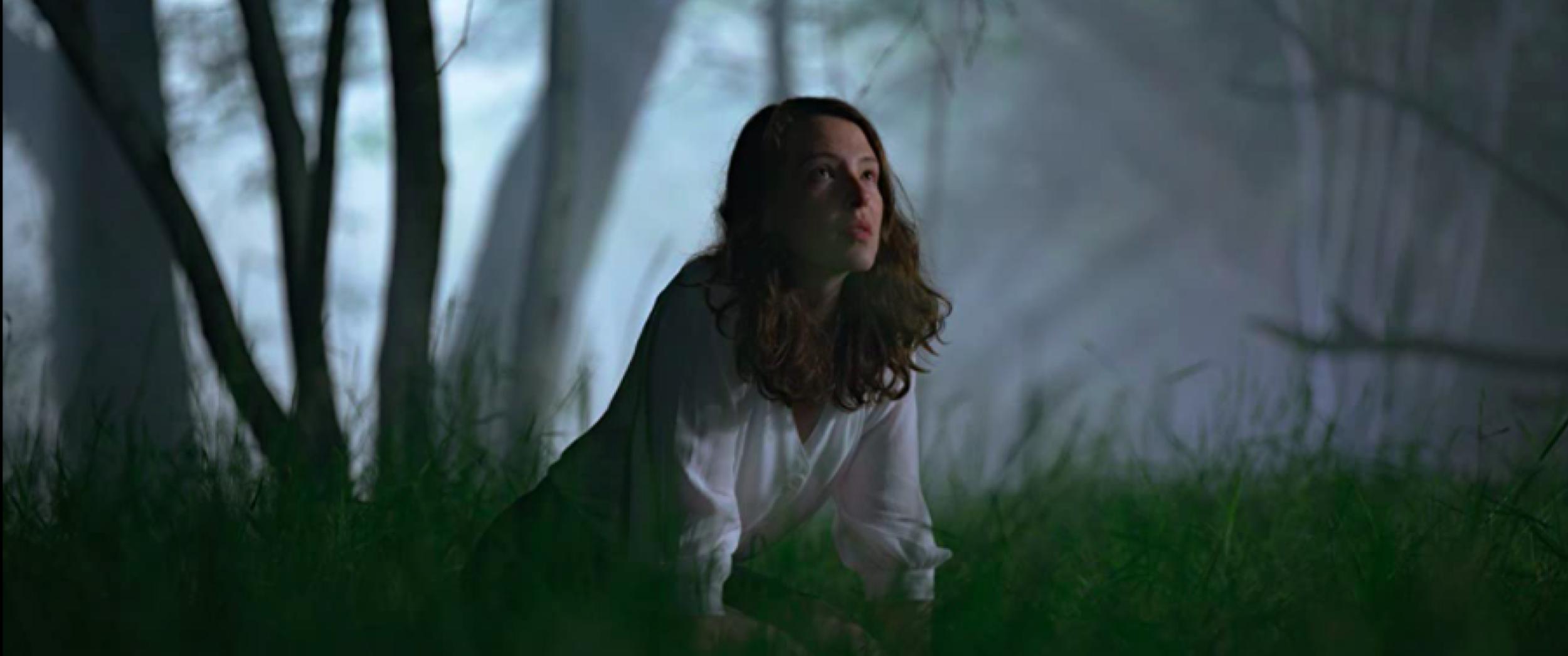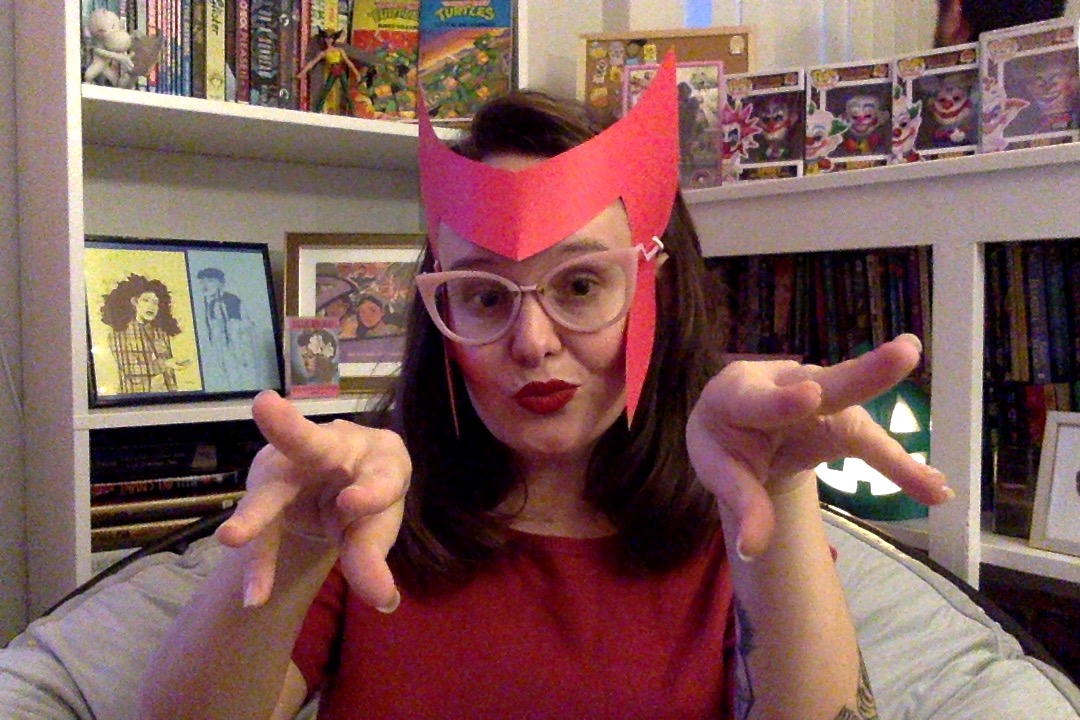What to Watch Verdict
A wicked feature debut for Lee Haven Jones this is one of the highlights of SXSW.
Pros
- +
🐰 Eerie AF.
- +
🐰 Seriously effective sound design.
- +
🐰 Intriguing ecological-tinged class war horror.
- +
🐰 Gorgeous cinematography.
- +
🐰 Ridiculously good feature debut.
- +
🐰 Big early Yorgos Lanthimos energy.
Cons
- -
🐰 An aesthetic tone shift in the final moments stops this being a basically perfect debut.
The Feast is part of our SXSW 2021 coverage. You can find all of our reviews here.
Horror has often been used as a vehicle to tell stories about the haves and the have nots, the evil of the wealthy and the terrible things they did to get to where they are. But rarely do many do it with the chilling and brutal efficiency of The Feast. Lee Haven Jones' Welsh language feature stands out as one of the most original and stylistically satisfying entries into this year's SXSW. While the setup is relatively simple, there's far more than meets the eye. This darkly thrilling class war horror establishes Jones as an exciting new talent in horror filmmaking.
Cadi (Annes Elwy) is hired to waitress a small dinner party for Glenda (Nia Roberts) and her husband Gwyn (Julian Lewis Jones) when their usual help is called away on a family emergency. It's the kind of subtle but loud choice that the super rich make. No able-bodied person really needs help to cook a meal for a few friends, but it's a power play. Based solely in their need to show that they are above someone else, it's a decision that tells us a lot about the family before we truly get to know them, and it's also one that will define the rest of their relatively short existences, as Cadi has a plan and it's driven by the most relatable of motives: revenge. Elwy is a constantly unsettling presence and gives an already eerie film another layer of resounding dread as she silently wanders around the sprawling modern home, crossing boundary after boundary under the invisibility that comes with being the help.
Jones and cinematographer Bjørn Ståle Bratberg craft an effectively clinical kind of horror. The emptiness of wealth and the clean lines of modern architecture add to the chilling mystery that drives the film. It helps, of course, that the family Cadi has been hired by are the nastiest kind of narcissistic. Glenda is boastful and cruel, eager to remind Cadi know that she's there to serve, embarrassed of her working class past. Gwyn treats her as a servant, but also implies the want for an intimate relationship. Their rebellious son Guto is an addict who sees their new poor indenture as a way to get around his strict parents and enforced sobriety. And his brother Gweirydd (Sion Alun Davies) is a sexual predator who exists on a diet of raw meat and is constantly trying to find ways to get Cadi alone. Each of them sees Cadi as nothing but an object, a tool for their desires and nothing more, which is why none of them can see the inevitable end rushing to meet them.
While atmosphere is king here, Roger Williams' script plays an equal part in weaving this dread-soaked tale. No signposting is needed as Cadi creeps and we overhear conversations about the greed and harm that the family and one of their guests, Euros (Rhodri Meilir), have wrought on the local farming community and land. Williams builds so many deceivingly simple yet intricate moments and character choices, like the inclusion of Mair (Lisa Palfrey). One of the dinner party guests, the less glamorous older woman hasn't dressed for the occasion. She looks out of place, treats Cadi with kindness and empathy, and sticks out like a sore thumb. Until, that is, it's revealed that she's only there to be pressured into selling her own farm to the ever-encroaching mining company that Euros represents. None of this ever feels expository, though. There's such a light touch and Bratberg's cinematography always seems as if we're overhearing something we shouldn't. We're complicit in Cadi's plan and it's not a particularly unpleasant feeling, that is until she begins to really show her gruesome hand. But the deeper question is... is it really Cadi's plan at all?
The restrained but brutal use of violence in the film is one of The Feast's mightiest tools. Most of the slow-burn runtime is spent at a dinner party and in a large house in rural Wales, nothing more and nothing less. But when Jones decides to commit to the horror and unleashes Cadi, every grimly inventive scene will haunt you. Let's just say there's more than one "oh my god" moment as Cadi ramps up her revenge. Each gorgeously shot and uniquely grotesque sequence is designed to most entice and destroy her target, and Jones knows just what to show and what not to. It's an impressively controlled use of gore and anticipation and one that makes The Feast's final act unforgettable.
That said, the final moments shift gears and style in a way that felt a little muddled and slightly jarred, taking away a little of the film's clean-cut power. That's a minor quibble in a stunning debut that reimagines the revenge film as an ecological class war parable about destroying what has been stolen when there's no one left to reclaim it.
The latest updates, reviews and unmissable series to watch and more!
Rosie Knight is an Eisner-winning journalist and author who's been writing professionally since 2005. Her career has taken her around the world and, although she hails from London, she currently resides in Los Angeles where she writes full time. She began as a professional poet but transitioned into journalism, starting at the Eisner-winning WWAC in 2016. Since then she has written over 1500 articles for digital media sites including What to Watch, Nerdist, IGN, The Hollywood Reporter, Esquire, Den of Geek, DC Comics, /Film, BuzzFeed, and Refinery29. She also writes comics including The Haunted High Tops and Cougar and Cub. When she's not writing she spends far too much time watching horror movies and Hallmark films.


